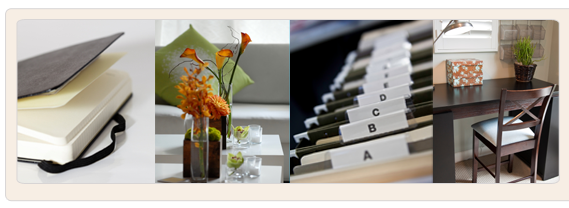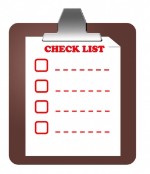 It’s February already! The month of January just seemed to fly by.
It’s February already! The month of January just seemed to fly by.
Our associates at Neworld Coaching tell us that although 50% of people make New Year’s resolutions, 35% never even make it out of the gate. How are you doing with your resolutions? If you’re not doing as well as you would like, don’t give up! Sometimes all that’s required is a minor adjustment.
So let’s get started and turn over another leaf!
ORGANIZING YOUR FINANCIAL RECORDS AND IMPORTANT DOCUMENTS – Part 1
“Documents create a paper reality we call proof.” Mason Cooley, American Writer (1927-2002)
Do you know where your will or your birth certificate is located? Can you find your house insurance policy?
If not, it’s never too late to get organized. In the event of an emergency, death or disaster, being able to find required documents quickly can make a difficult situation more manageable.
Planning
Plan to set aside a few hours to put your paperwork in order. If it feels overwhelming, break it down into smaller chunks—an hour a week until it’s done.
Getting Started
Start by sorting your paperwork into categories. If you don’t need it, get rid of it. Remember that 80% of what you file you will never look at again. Reduce your risk of identity theft by shredding any documents containing your name, address and/or account numbers. Label files so that you will be able to find items when you need them. Create an Action file for any items requiring your attention.
Insurance Documents
Whether it’s your house insurance, car insurance or life insurance policy, insurance documents may be required if you need to make a claim.
Will and Powers of Attorney
The original copy of your will may be at your lawyer’s office, but you should know where your copies are at all times. A family member, close friend and/or your executor should also know where your will and original powers of attorney (medical and financial) are kept. In the event of an accident, illness or your death, they will need these documents.
If you don’t have a will or powers of attorney or you haven’t gotten around to updating them, don’t put it off. Add it to your to-do list, and look after it as soon as possible.
Birth Certificates, Adoption Papers, Marriage Certificate and Divorce Papers
Knowing where all of these documents are stored can reduce the time and effort of having to replace them—not to mention the cost.
SocialInsurance Card
It is not advisable to carry your SocialInsurance card in your wallet. Your card is usually only required for employment and investment purposes. Leaving it in a secure location at home eliminates the possibility that it may get lost or stolen.
Passports
Do you know where your family’s passports are? Remember to store them securely, so they aren’t stolen in the event of a break-in.
Safety Deposit Box Key
If you have a safety deposit box, do you know where the key is?
Storage
Store your records in a filing cabinet, storage box (plastic is preferred over cardboard) or a home safe. They are worth protecting.
Reward Yourself
When you’re done, don’t forget to reward yourself for your hard work! Investing the time to put your records in order will be worth the peace of mind!
 CHOICES FOR USING THE TIME IN YOUR LIFE
CHOICES FOR USING THE TIME IN YOUR LIFE







Connect with us Online